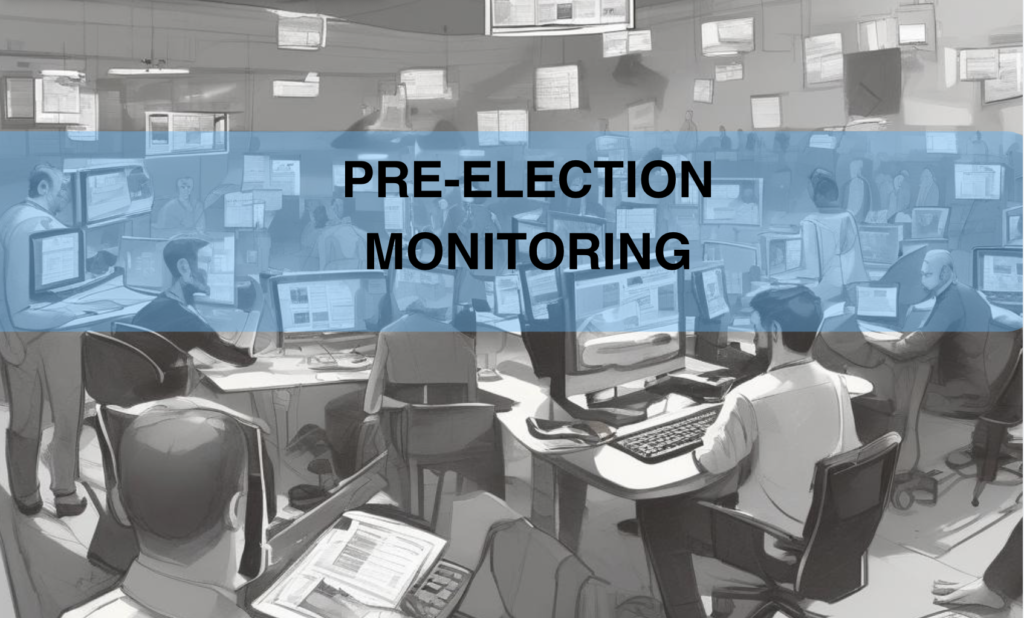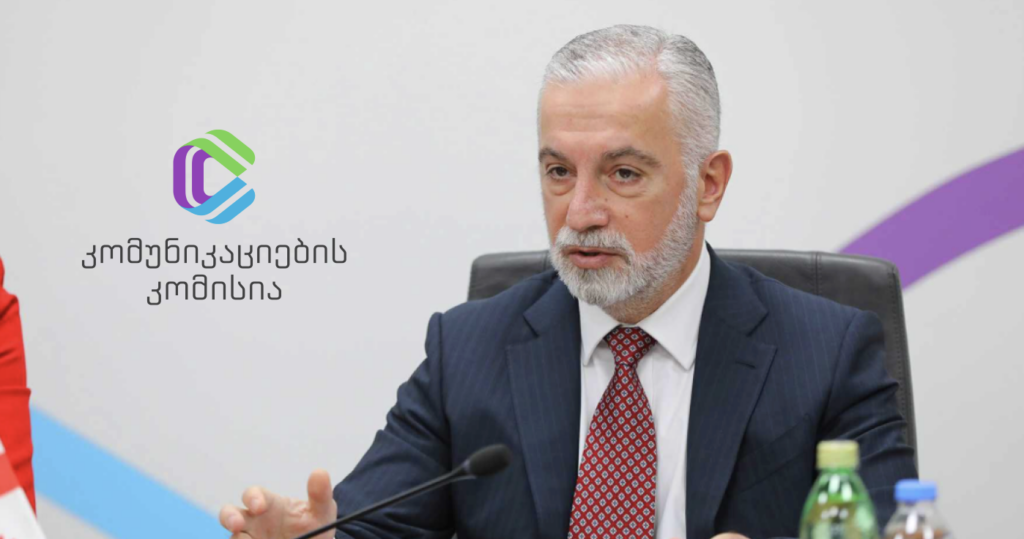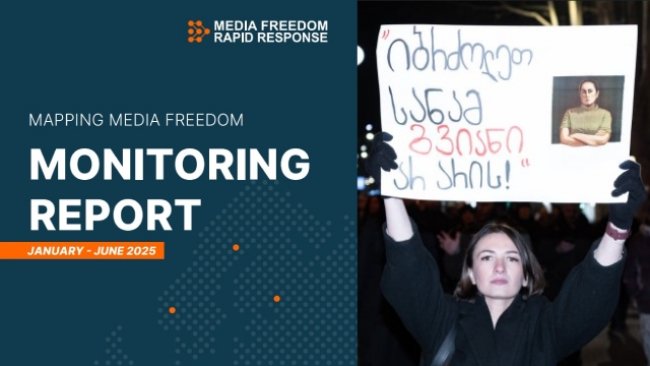ISFED, the member organization of Media Advocacy Coalition published the Interim Report of Pre-Election Monitoring covering the period from August 28 through September 30.
Introduction
The next parliamentary elections in Georgia will be held on October 26, 2024. For the first time in the country’s history, Georgian citizens will elect the highest representative body through a proportional electoral system, which will play a decisive role in the composition of the government, along with the election of the President of Georgia. The change in the electoral system, which has the potential to fundamentally affect the development of the party and the political system in general, has already led to significant changes in party politics and is likely to influence voter behavior as well. At the same time, the main political unions consider the upcoming elections to be crucial for the country’s future.
According to Georgian legislation, the official pre-election period began 60 days before the election day, on August 27. The International Society for Fair Elections and Democracy (hereinafter “ISFED”) commenced its monitoring of pre-election processes across the country, in 73 electoral districts, earlier on June 1, 2024. On June 25, the organization published a pre-election environment assessment document[1], and on September 4, it provided a summary of its monitoring findings covering the period from June 1 to August 27. [2]
This monitoring report includes the results of the pre-election period from August 27 to September 30, in addition to a separate event that started developing before August 27 and continued during the monitoring period, and/or the further development of fact(s) identified within the monitoring period. The report reviews several elements of the election administration’s work, the electoral registration process of political parties, the representation of women in registered party lists, the progress of the pre-election campaign, the media environment, electoral disputes, and other key trends identified during the reporting period.
Key findings
Within the framework of ISFED’s observation mission, during the pre-election campaign, from August 27 to September 30, 2024, the following main tendencies were revealed:
- Since the start of the official pre-election campaign, the anti-Western campaign, inclusive of Euroscepticism and efforts to discredit Georgia’s strategic partners, remains active. Additionally, there was a campaign to exploit the tragedy of the Ukrainian people affected by the war for electoral purposes;
- In parallel with the enforcement of the law “On Transparency of Foreign Influence”, aimed at undermining civil society, discrediting messages against civil society have now increased in the ruling party’s election campaign. In particular, the ruling party’s campaign materials featured images of non-governmental organizations’ representatives in an offensive and humiliating context.
- A decision made by the Anti-Corruption Bureau on September 24, 2024, designated Transparency International – Georgia and its Executive Director, Eka Gigauri, as well as the organization Choose Europe, its Director, Khatuna Lagazidze, and the co-founders of the same organization, as individuals with declared electoral goals. According to ISFED’s assessment, this decision involved an unlawful and unjustifiably broad interpretation of the legalstandards, with the Bureau relying on an unfounded ruling from the Tbilisi Court of Appeal just days earlier. The ruling in question had determined that Choose Europe’s activities fell within the scope of declared electoral goals. However, the Bureau later revoked its decision following an appeal by the Prime Minister of Georgia, raising further concerns about the agency’s independence.
- After the date was set for elections, the recruitment process for district and precinct election commissions began. The selection of temporary members in district election commissions took place in an environment with little competition. At the same time, out of 219 vacant positions, only 10 members were selected with a high quorum (⅔ of the CEC composition), while 209 members were selected by a majority of the full CEC composition, thus excluding the election of district election commission members on the basis of a consensus decision. According to ISFED’s observation, a significant part of the members of the district election commissions elected by the CEC are primarily individuals employed by budgetary organizations;
- The selection process for professional members of precinct election commissions also took place in a low-competition environment. According to ISFED’s observation, in some cases, the members appointed by opposition parties to the district election commissions were not fully provided with the documentation of candidates participating in the selection process for professional members of precinct election commissions;
- Members of district election commissions were also not given sufficient time to properly review the competition applications submitted by the candidates for precinct election commissions. In order to select professional members, the district election commissions did not conduct interviews with any candidates, despite some commission members expressing a desire to do so. The deadlines set by the law allowed for this possibility;
- Heads and members of precinct election commissions were, in most cases, elected by an unqualified majority of the full district election commission composition, as they did not secure the support of ⅔ of the full composition of the commissions in the first vote. Some of the candidates elected as members and heads of precinct election commissions had been subject to disciplinary responsibilities during the general elections held in 2020 and/or 2021. A significant portion of precinct election commission members selected by district election commissions are individuals employed by budgetary organizations. Some of the members of precinct election commissions are also affiliated with the ruling party;
- Representatives of ISFED observed 98 training sessions held for heads of precinct election commissions across 41 election constituencies. The trainings were generally well organized. Participants received information related to the voting process. Two instances were recorded where members of the Lagodekhi and Isani district election commissions were prevented from attending the training sessions for the heads of their respective precinct election commissions;
- As a result of ISFED’s observation of mock polling procedures conducted using electronic technologies, a tendency revealed that a notable part of civil servants and individuals employed in budgetary organizations participated in the process, often organized and grouped based on their place of employment to participate in mock elections. In 10 districts, the involvement of coordinators of the “Georgian Dream – Democratic Georgia” party was noted, who facilitated transportation and mobilization of groups participating in the mock elections. Cases of registration of citizens were also recorded.
- According to the CEC decree of August 27, different remuneration was determined for the professional members of the precinct election commission and the members appointed by the party. The election administration is a collegial body where each member of the commission enjoys equal rights. According to ISFED’s assessment, this discriminatory approach harms the effective functioning of the precinct electioncommission and is also inconsistent with the principle of equality guaranteed by basic human rights and freedoms. In addition, over the years, the differentiation introduced and revealed in the activities of party-appointed and professional members of the precinct election commission—through election legislation or by-laws, particularly in terms of the division of duties or functional redistribution—undermines the core principle of staffing in the election administration and the equality of commission members;
- The issue of citizens living outside the borders of Georgia actively exercising their electoral rights remains a significant challenge. Despite numerous requests from voters and several lawsuits filed by involved stakeholders (including two lawsuits from ISFED) calling for the creation of additional precincts abroad, the court did not satisfy these requests. According to ISFED’s assessment, the Central Election Commission and the Ministry of Foreign Affairs did not demonstrate the necessary will and did not take all measures to establish more polling stations abroad, including in cities where Georgia does not have diplomatic representation, even though over 50 Georgian citizens reside in those areas;
- Compared to the previous reporting period, there was a significant increase in donations to some opposition parties after the start of the official pre-election period, bringing the financial capabilities of the election campaigns of three political subjects closer to each other. According to data from the Anti-Corruption Bureau, during the first month of the official pre-election period, from August 27 to September 26, the political union “Coalition for Change – Gvaramia Melia Girchi Droa” received 3,792,338 GEL in donations, “Georgian Dream – Democratic Georgia” received 3,327,960 GEL, and the union “Strong Georgia – Lelo, for the people, for freedom!” received 2,115,360 GEL. The sum of donations received by other political parties during the period amounted to only 344,072 GEL. This tendency is significantly different from the distribution of election campaign donations in the earlier period, which was marked by a sharp dominant advantage of the ruling party;
- Along with donations, budget financing is an additional source of income for some political parties. Based on the results of the last parliamentary elections, during the month, “Georgian Dream” received 428,335 GEL, “Unity – National Movement” received 183,302.91 GEL, “European Georgia” received 93,700.75 GEL, “Alliance of Patriots of Georgia” received 86,926.66 GEL, “Yes to Europe – Strategy Agmashenebeli” received 78,327.11 GEL, and other political parties were financed with a total of 191,319.34 GEL;
- According to the tendency observed by ISFED, in contrast to previous years, while sharing facts, individuals are now noticeably more reluctant to disclose their personal histories or identifying information.
- During the reporting period, political parties across the country conducted election campaigns, including direct engagement with voters. According to ISFED’s observers, various incidents and violations were recorded that hindered election candidates’ ability to freely conduct these campaigns. Specifically, separate cases of physical violence, disruptions to campaign events, threats and intimidation, a break-in and attempt to damage party offices, arrests of individuals affiliated with political parties, and an alleged voter bribery were documented;
- The misuse of administrative resources for electoral purposes continues to pose a significant challenge. In this regard, it is important to highlight that there were instances where employees of public institutions were mobilized and required to attend Georgian Dream – Democratic Georgia election events, including during working hours. Additionally, ruling party candidates used events funded by local self-government for campaign purposes, and campaign materials were distributed on social media under the name of municipal institutions.
- The politicization of the education system remains a significant issue for the 2024 parliamentary elections. In the pre-election period, several cases of politically motivated selection and discrimination against individuals employed in educational resource centers and public schools were observed.
- 19 political unions submitted their electoral lists to the CEC. In the context of the abolition of the mandatory gender quota, the representation of women on some registered party lists has declined. Additionally, in some instances, a significant proportion of women are placed in non-advanced positions on the list. However, it is important to note that despite the removal of the gender quota, some political unions have upheld a minimum 25% representation of women on their full lists;
During the reporting period, according to the CEC, 60 complaints were submitted to the election administration, along with 8 lawsuits filed in court. Of these, 53 complaints and 4 lawsuits were submitted by election candidates, while 7 complaints and 4 lawsuits were submitted by monitoring organizations. Among the reviewed cases, 1 lawsuit remains unreviewed, 2 complaints are still under consideration, and the rest were dismissed. ISFED submitted complaints to the Central Election Commission and relevant District Election Commissions concerning six violations of campaign rules and improper use of administrative resources during the pre-election period. Of these, five complaints were dismissed, and one is still under consideration.



